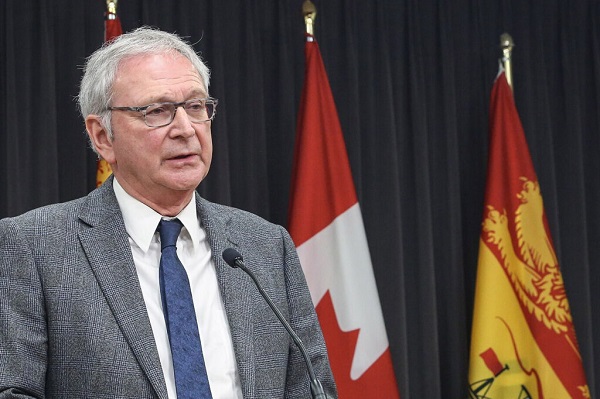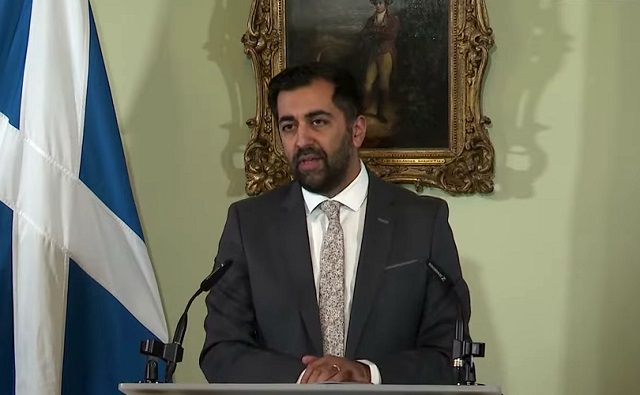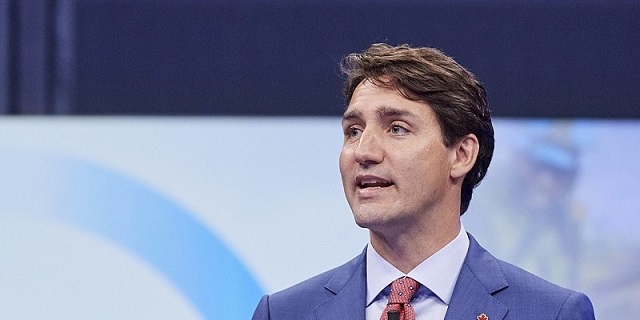Economy
Deputy PM Freeland doesn’t deny Scott Moe could face charges for not collecting carbon tax
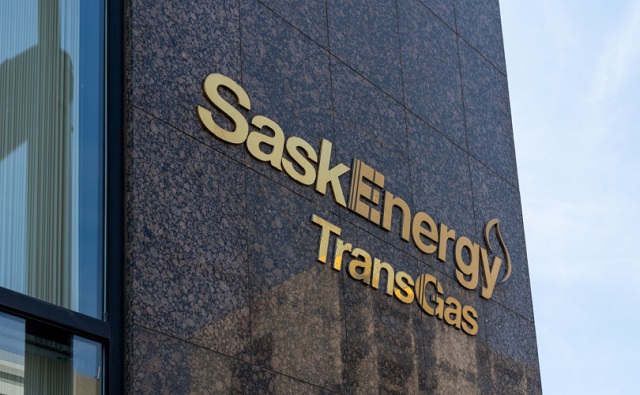
From LifeSiteNews
Premier Scott Moe’s refusal to force Saskatchewan residents to pay the tax comes after Prime Minister Justin Trudeau refused to extend the tax exemption to forms of heating used in Conservative provinces
The Canadian Liberal government refuses to rule out jail time for Saskatchewan Premier Scott Moe if he refuses to collect the carbon tax on home heating.
During a November 3 media meeting, Liberal Finance Minister and Deputy Prime Minister Chrystia Freeland avoided directly answering if Moe would be criminally charged for refusing to collect Trudeau’s controversial carbon tax for home heating within the province.
“What can the federal government do to prevent [Moe] from acting unilaterally?” a reporter questioned. “Will he, will the province, will anyone, incur penalties? Will there be fees? Or perhaps even jail time?”
Freeland did not answer the question directly, instead saying, “The federal government expects everyone in Canada to obey the law. Canada is a country of good peace, order, and good government.”
“I think that is something all Canadians believe in. That’s something we expect,” she added.
Moe’s refusal to force Saskatchewan residents to pay the tax comes after Prime Minister Justin Trudeau suspended his carbon tax last week on home heating oil amid rising costs of living and his decreasing popularity across multiple polls.
Moe pointed out that the tax exemption only applies to home heating oil, which is primarily used in Atlantic provinces, while other forms of heating, including natural gas (the main source of heat in Western provinces), is not exempt.
“I cannot accept the federal government giving an affordability break to people in one part of Canada but not here,” Moe said in a video posted October 30 on X.
“The prime minister chose to make life more affordable for families in one part of the country while leaving Saskatchewan families out in the cold,” he said.
As a result, Moe promised that if the exemption was not extended to other forms of heating, he will direct SaskEnergy to stop collecting carbon tax on natural gas, “effectively providing Saskatchewan residents with the very same exemption that the federal government has given heating oil in Atlantic Canada.”
Following Moe’s demands, Trudeau declared that he will not make any further carve-outs to the carbon tax. Trudeau’s statement was supported by both Natural Resources Minister Jonathan Wilkinson and Environment Minister Steven Guilbeault.
Notably, Freeland’s comments come just months after she faced a massive speeding ticket when defending the Trudeau government’s carbon tax by saying that she does not own a car and bikes instead.
Trudeau’s carbon tax, framed as a way to reduce carbon emissions, has cost Canadians hundreds more annually despite rebates.
The increased costs are only expected to rise, as a recent report revealed that a carbon tax of more than $350 per tonne is needed to reach Trudeau’s net-zero goals by 2050.
Currently, Canadians living in provinces under the federal carbon pricing scheme pay $65 per tonne, but the Trudeau government has a goal of $170 per tonne by 2030.
Business
ESG Puppeteers
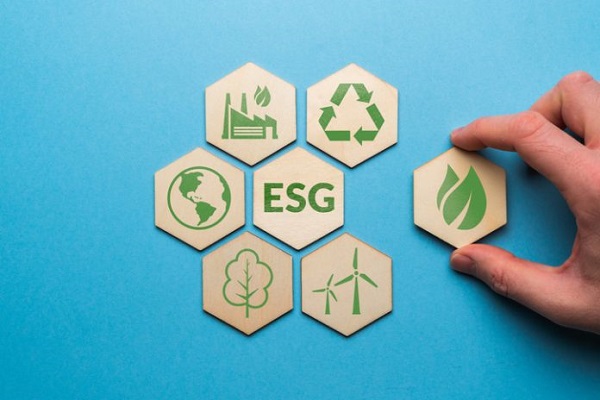
From Heartland Daily News
By Paul Mueller
The Environmental, Social, and Governance (ESG) framework allows a small group of corporate executives, financiers, government officials, and other elites, the ESG “puppeteers,” to force everyone to serve their interests. The policies they want to impose on society — renewable energy mandates, DEI programs, restricting emissions, or costly regulatory and compliance disclosures — increase everyone’s cost of living. But the puppeteers do not worry about that since they stand to gain financially from the “climate transition.”
Consider Mark Carney. After a successful career on Wall Street, he was a governor at two different central banks. Now he serves as the UN Special Envoy on Climate Action and Finance for the United Nations, which means it is his job to persuade, cajole, or bully large financial institutions to sign onto the net-zero agenda.
But Carney also has a position at one of the biggest investment firms pushing the energy transition agenda: Brookfield Asset Management. He has little reason to be concerned about the unintended consequences of his climate agenda, such as higher energy and food prices. Nor will he feel the burden his agenda imposes on hundreds of millions of people around the world.
And he is certainly not the only one. Al Gore, John Kerry, Klaus Schwab, Larry Fink, and thousands of other leaders on ESG and climate activism will weather higher prices just fine. There would be little to object to if these folks merely invested their own resources, and the resources of voluntary investors, in their climate agenda projects. But instead, they use other people’s resources, usually without their knowledge or consent, to advance their personal goals.
Even worse, they regularly use government coercion to push their agenda, which — incidentally? — redounds to their economic benefit. Brookfield Asset Management, where Mark Carney runs his own $5 billion climate fund, invests in renewable energy and climate transition projects, the demand for which is largely driven by government mandates.
For example, the National Conference of State Legislatures has long advocated “Renewable Portfolio Standards” that require state utilities to generate a certain percentage of electricity from renewable sources. The Clean Energy States Alliance tracks which states have committed to moving to 100 percent renewable energy, currently 23 states, the District of Columbia, and Puerto Rico. And then there are thousands of “State Incentives for Renewables and Efficiency.”
Behemoth hedge fund and asset manager BlackRock announced that it is acquiring a large infrastructure company, as a chance to participate in climate transition and benefit its clients financially. BlackRock leadership expects government-fueled demand for their projects, and billions of taxpayer dollars to fund the infrastructure necessary for the “climate transition.”
CEO Larry Fink has admitted, “We believe the expansion of both physical and digital infrastructure will continue to accelerate, as governments prioritize self-sufficiency and security through increased domestic industrial capacity, energy independence, and onshoring or near-shoring of critical sectors. Policymakers are only just beginning to implement once-in-a-generation financial incentives for new infrastructure technologies and projects.” [Emphasis added.]
Carney, Fink, and other climate financiers are not capitalists. They are corporatists who think the government should direct private industry. They want to work with government officials to benefit themselves and hamstring their competition. Capitalists engage in private voluntary association and exchange. They compete with other capitalists in the marketplace for consumer dollars. Success or failure falls squarely on their shoulders and the shoulders of their investors. They are subject to the desires of consumers and are rewarded for making their customers’ lives better.
Corporatists, on the other hand, are like puppeteers. Their donations influence government officials, and, in return, their funding comes out of coerced tax dollars, not voluntary exchange. Their success arises not from improving customers’ lives, but from manipulating the system. They put on a show of creating value rather than really creating value for people. In corporatism, the “public” goals of corporations matter more than the wellbeing of citizens.
But the corporatist ESG advocates are facing serious backlash too. The Texas Permanent School Fund withdrew $8.5 billion from Blackrock last week. They join almost a dozen state pensions that have withdrawn money from Blackrock management over the past few years. And last week Alabama passed legislation defunding public DEI programs. They follow in the footsteps of Florida, Texas, North Carolina, Utah, Tennessee, and others.
State attorneys general have been applying significant pressure on companies that signed on to the “net zero” pledges championed by Carney, Fink, and other ESG advocates. JPMorgan and State Street both withdrew from Climate Action 100+ in February. Major insurance companies started withdrawing from the Net-Zero Insurance Alliance in 2023.
Still, most Americans either don’t know much about ESG and its potential negative consequences on their lives or, worse, actually favour letting ESG distort the market. This must change. It’s time the ESG puppeteers found out that the “puppets” have ideas, goals, and plans of their own. Investors, taxpayers, and voters should not be manipulated and used to climate activists’ ends.
They must keep pulling back on the strings or, better yet, cut them altogether.
Paul Mueller is a Senior Research Fellow at the American Institute for Economic Research. He received his PhD in economics from George Mason University. Previously, Dr. Mueller taught at The King’s College in New York City.
Originally posted at the American Institute for Economic Research, reposted with permission.
Automotive
Governments in Canada accelerate EV ‘investments’ as automakers reverse course

From the Fraser Institute
Evidence continues to accrue that many of these “investments,” which are ultimately of course taxpayer funded, are risky ventures indeed.
Even as the much-vaunted electric vehicle (EV) transition slams into stiff headwinds, the Trudeau government and Ontario’s Ford government will pour another $5 billion in subsidies into Honda, which plans to build an EV battery plant and manufacture EVs in Ontario.
This comes on top of a long list of other such “investments” including $15 billion for Stellantis and LG Energy Solution, $13 billion for Volkswagen (with a real cost to Ottawa of $16.3 billion, per the Parliamentary Budget Officer), a combined $4.24 billion (federal/Quebec split) to Northvolt, a Swedish battery maker, and a combined $644 million (federal/Quebec split) to Ford Motor Company to build a cathode manufacturing plant in Quebec.
All this government subsidizing is of course meant to help remake the automobile, with the Trudeau government mandating that 100 per cent of new passenger vehicles and light trucks sold in Canada be zero-emission by 2035. But evidence continues to accrue that many of these “investments,” which are ultimately of course taxpayer funded, are risky ventures indeed.
As the Wall Street Journal notes, Tesla, the biggest EV maker in the United States, has seen its share prices plummet (down 41 per cent this year) as the company struggles to sell its vehicles at the pace of previous years when first-adopters jumped into the EV market. Some would-be EV makers or users are postponing their own EV investments. Ford has killed it’s electric F-150 pickup truck, Hertz is dumping one-third of its fleet of EV rental vehicles, and Swedish EV company Polestar dropped 15 per cent of its global work force while Tesla is cutting 10 per cent of its global staff.
And in the U.S., a much larger potential market for EVs, a recent Gallup poll shows a market turning frosty. The percentage of Americans polled by Gallup who said they’re seriously considering buying an EV has been declining from 12 per cent in 2023 to 9 per cent in 2024. Even more troubling for would-be EV sellers is that only 35 per cent of poll respondents in 2024 said they “might consider” buying an EV in the future. That number is down from 43 per cent in 2023.
Overall, according to Gallup, “less than half of adults, 44 per cent, now say they are either seriously considering or might consider buying an EV in the future, down from 55 per cent in 2023, while the proportion not intending to buy one has increased from 41 per cent to 48 per cent.” In other words, in a future where government wants sellers to only sell EVs, almost half the U.S. public doesn’t want to buy one.
And yet, Canada’s governments are hitting the gas pedal on EVs, putting the hard-earned capital of Canadian taxpayers at significant risk. A smart government would have its finger in the wind and would slow down when faced with road bumps. It might even reset its GPS and change the course of its 2035 EV mandate for vehicles few motorists want to buy.
Author:
-

 COVID-197 hours ago
COVID-197 hours agoCOVID Lab Leak: Over four later, EcoHealth Alliance funding is finally suspended
-

 Alberta2 days ago
Alberta2 days agoProvince announces next step to revamped health care system
-

 Alberta1 day ago
Alberta1 day agoPharmacist-led clinics improve access to health care: Lessons from Alberta
-
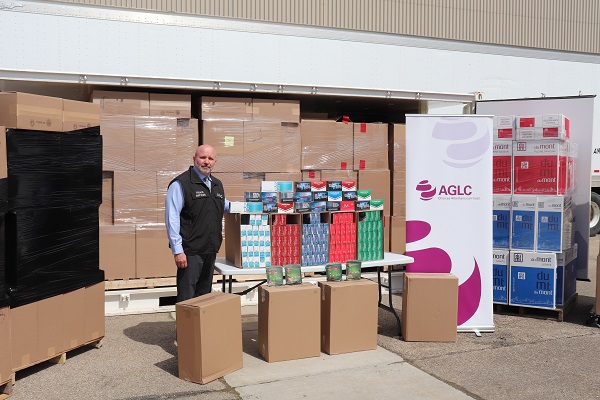
 Alberta1 day ago
Alberta1 day ago30 million contraband cigarettes valued at $25 million dollars seized in Alberta
-
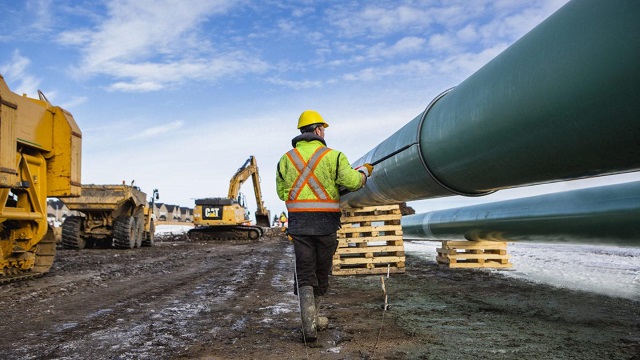
 Canadian Energy Centre1 day ago
Canadian Energy Centre1 day agoTrans Mountain completion shows victory of good faith Indigenous consultation
-
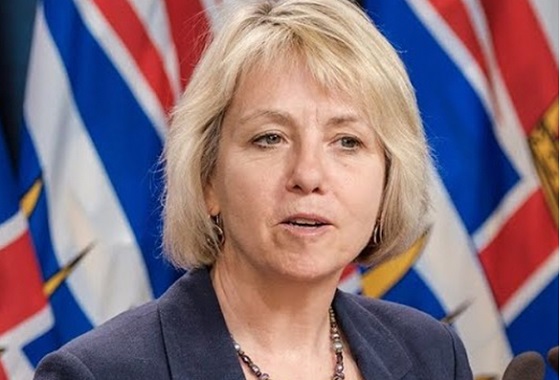
 COVID-191 day ago
COVID-191 day agoHealthcare workers obtain partial win against Bonnie Henry in BC Supreme Court
-

 COVID-1924 hours ago
COVID-1924 hours agoElon Musk-backed doctor critical of COVID response vows appeal after court sides with medical board
-

 COVID-192 days ago
COVID-192 days agoJapan’s most senior cancer doctor: COVID shots are ‘essentially murder’




